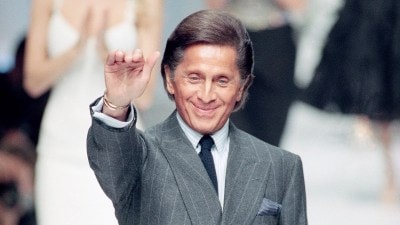33 held for Morocco blasts
Radical Islamists were the prime suspects on Sunday for suicide bomb attacks in Morocco which killed 41 people and prompted fresh warnings f...

Radical Islamists were the prime suspects on Sunday for suicide bomb attacks in Morocco which killed 41 people and prompted fresh warnings from US President George W. Bush that Al Qaeda remained a threat.
In a series of raids, Moroccan police arrested 33 suspects on Saturday, including some linked to the radical Djihad Salafist group, a senior government official said. One of the group8217;s main spiritual leaders was jailed earlier this month for inciting violence.
Moroccan Interior Minister Al Mustapha Sahel said the investigation 8216;8216;points to a group that has been arrested recently,8217;8217; an apparent reference to Djihad Salafist.
The Minister told state-run on 2M Television that police had identified the bodies of seven of the 14-strong cell believed to have carried out the five almost simultaneous attacks on Friday night.
The attacks, the first in Morocco since two Spanish tourists were gunned down in a Marrakech hotel in 1995, left around 100 people wounded and shattered Morocco8217;s image as a relatively stable country and safe tourist destination.
A Jewish community centre, a Jewish-owned restaurant and a Spanish club were among the targets in Friday8217;s night of death and destruction in a city immortalised in the 1942 romantic Hollywood film Casablanca.
Three French nationals, two Spaniards and an Italian were reported killed in the second major attack within a week on an Arab kingdom with historically close ties to the US. Saudi Arabia was hit by multiple suicide bombings on Monday. Bush said the attacks in Casablanca and the Saudi capital Riyadh 8216;8216;demonstrate that the war against terror goes on8217;8217;, and offered Morocco US support to track down the perpetrators.
In Rabat, security was heavy around Western embassies but remained at levels imposed after the start of the US-led war in Iraq.
US Officials said a link between al Qaeda and the Morocco attacks was plausible. Reuters
- 01
- 02
- 03
- 04
- 05































